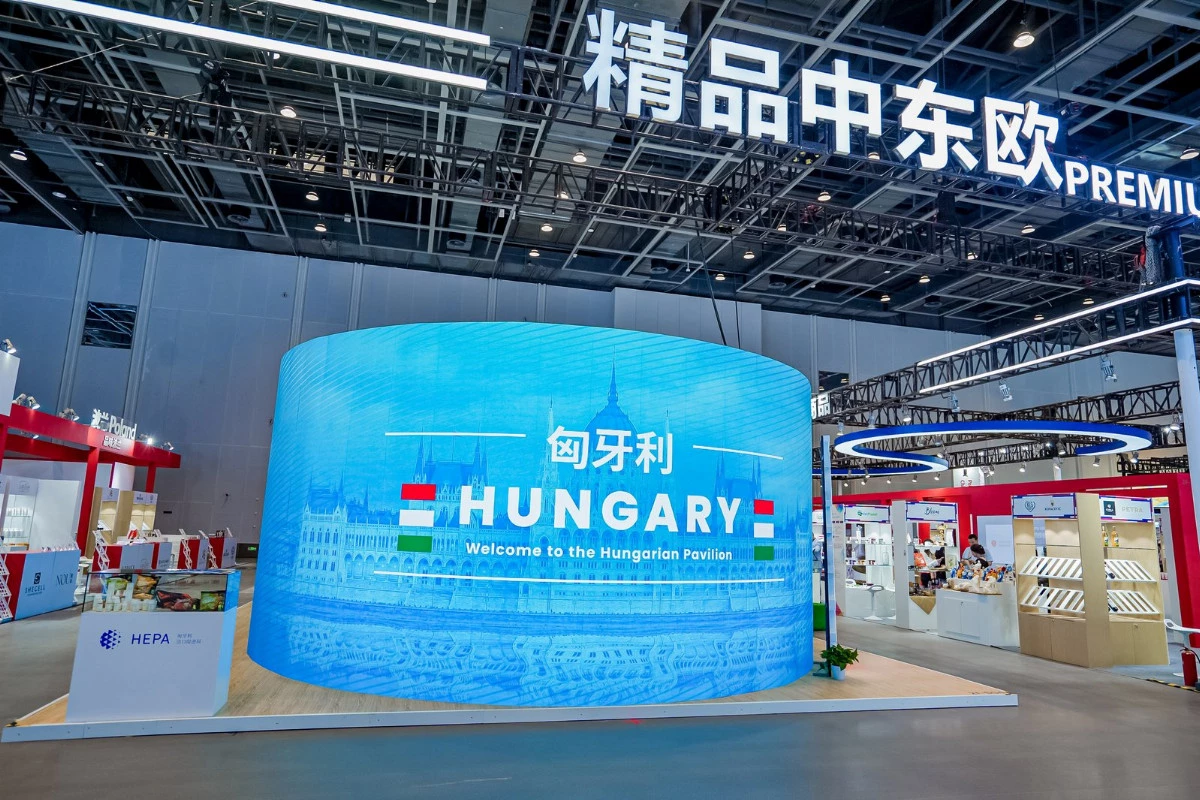
Launched as Ningbo's first intercontinental route, this service is more than a logistical link - it's a symbol of a partnership that has elevated Hungary to the forefront of Chinese investment in Central and Eastern Europe and deepened their status as indispensable trading partners.
Driving Trade Dynamism: The Flight That Accelerated Commerce
This 12-hour journey has redefined cross-border economic interaction. Prior to the direct route, business travelers faced cumbersome layovers, delaying negotiations and supply chain adjustments. Today, Hungarian engineers and Chinese executives can commute seamlessly, enabling face-to-face collaboration on high-stakes projects.
The flight's cargo hold also serves as a fast lane for high-value goods. Hungarian premium wines, precision automotive components and fresh agricultural products reach Chinese markets in very quick space, while Ningbo's cutting-edge exports - electric vehicles (EVs), lithium batteries and solar panels - gain rapid access to European assembly lines.
The numbers underscore this transformation: China has remained Hungary's largest non-EU trading partner for over a decade, with bilateral trade surging to $16.2 billion in 2024, a year-on-year increase of 11.6 percent, according to China's Ministry of Commerce.
Investment Synergy: Where Strategy Meets Opportunity
This partnership thrives on three pillars: connectivity, which dissolves geographical barriers; complementarity, where Hungary's EU market access and technical expertise pair with Ningbo's manufacturing prowess; and shared vision, particularly in green and digital transformation. Hungary's strategic location and skilled workforce has made it a magnet for Chinese investment in the new energy vehicle (NEV) sector, with China emerging as the largest source of foreign direct investment (FDI) in Hungary in 2024. Major projects in EV battery production and smart manufacturing highlight this trend, leveraging Hungary's role as a key node in Europe's EV supply chain and Ningbo's industrial capabilities.
Hungary's industrial innovators, meanwhile, are integrating into Ningbo's manufacturing ecosystem. The China-CEEC International Industrial Cooperation Park hosts Hungarian ventures focused on advanced materials and technology, merging local R&D with Chinese production scale. The China-CEEC Expo in Ningbo, featuring many Hungarian products from organic foods to industrial machinery, showcases how connectivity and shared goals drive tangible collaboration. Hungary's role as China's top CEE trading partner and China's status as Hungary's leading non-EU partner reflect a blueprint for globalization rooted in mutual respect, where investment flows are guided by market efficiency and complementary strengths.

Fueling the EV Revolution: A Strategic Partnership
The bilateral collaboration shines brightest in the new energy sector. Major Chinese enterprises have invested in Hungarian EV and battery projects, including gigafactories that will produce cutting-edge components for European markets. These initiatives not only support Hungary's ambition to lead European EV manufacturing but also highlight China's role in reshaping global mobility. Chinese electric vehicles, with their affordability and advanced technology, are already making an impact on Hungary's used car market, offering consumers eco-friendly and cost-effective options.
"China is at the forefront of battery and EV technology," noted Csaba Wolf, vice president of ChinaCham, the Hungarian-Chinese Chamber of Economy. "Cooperation with China is essential for those seeking cutting-edge, sustainable solutions that balance performance and affordability." This sentiment is echoed in projects like CATL's gigafactory in Debrecen, where Ningbo's supply of advanced components, transported via the direct flight and integrated logistics networks, ensures seamless integration into Europe's EV supply chain. Together, these efforts are driving a shared vision of green transformation, fostering the transition to electric transportation and reducing reliance on traditional fuels.
Beyond Borders: People-to-People Bonds Strengthen Ties
The Budapest-Ningbo flight also facilitates deeper people-to-people exchanges. China's visa-free policy for Hungarian travelers has boosted tourism, with Chinese visitors increasingly drawn to Hungary's landscapes and cultural heritage, while Hungarian cuisine gains traction in China. These interactions foster trust, ensuring the relationship extends beyond economics to everyday lives.
At its core, this partnership thrives because it's people-driven. The flight symbolizes a future where connectivity and collaboration create shared prosperity, proving that nations can build bridges rather than barriers. As the direct route continues to connect continents, it carries the promise of an inclusive globalization – one where Hungary and China, as partners, lead the way.
The author is founder of the China Briefing newsletter